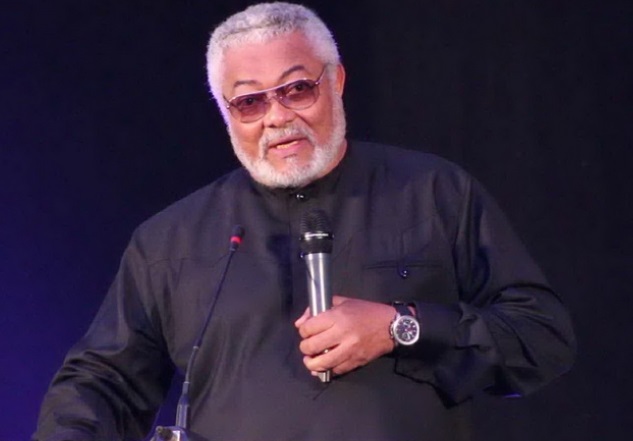Former President J.J Rawlings has stated that he is innocent in the circumstances leading to the murder of the three High Court Judges and a retired Army Major Officer in 1982.
J.J Rawlings in reacting to questions raised in a recent documentary by Joy FM on the killing of the Judges at an event in Kumasi said he was not blood thirsty .
“If I were
Joy News on October 2, 2018, premiered a documentary "Who Killed the Judges - a documentary on crimes that shook nation"
According to the documentary, On 30 June 1982, the three judges – Justices Kwadwo Adjei Agyepong, Poku Sarkodie and Mrs Cecelia Koranteng-Addow, and a retired Major in the Ghana Armed Forces, were abducted and branded “enemies of the revolution†under the Provisional National Defence Council (PNDC) led by Mr Rawlings.
Lance Corporal Amedeka, Tony Tekpor and Dzandu, all soldiers, had taken their captives to theÂ
But it rained that night, so the bodies did not burn as they murderers had wanted.
Following a public outcry, the PNDC set up the Special Investigation Board (SIB) headed by former Chief Justice Mr Justice Azu Crabbe to unravel the mystery.
It turned out that all the three judges were sitting reviewing cases brought to them by aggrieved citizens in connection with the treatment meted out to them by the Armed Forces Revolutionary Council junta led by Mr Rawlings after the 4 June 1979 coup.
The army officer, Major Sam Acquah, was the head of administration at GIHOC who had signed letters that led to the dismissal of some agitating workers, including a PNDC member Joachim Amartey Kwei. Their services were terminated after they invaded Parliament House and destroyed property.
The SIB established that the abduction and murder was a plot hatched with the connivance of members of the PNDC. The Board found that the plot was master-minded by Capt. Kojo Tsikata, PNDC Member in charge of National Security. The PNDC rejected that aspect of the report and let Capt. Tsikata and four others off the hook for lack of evidence.
The remaining four of the nine suspects were jailed. When on 19 June 1983, there was a jail-break at the Nsawam Medium Prisons and the Ussher Fort Prisons, L/Cpl Amedeka escaped from captivity and has since not been seen. But his three accomplices, Tony Tekpor, Dzandu and Hekli, as well as ex-PNDC Members Amartey Kwei, were executed by firing squad.
But Jerry Rawlings in an initial rebuttal on Twitter said history has been skewed to make innocent people appear guilty.
However, Managing Editor of the New Crusading Guide newspaper Abdul Malik Kweku Baako on
According to Kwek Baako, former President Rawlings response to the latest Joy News' documentary "Who killed the judges?' was needless and that he should have kept silent.





